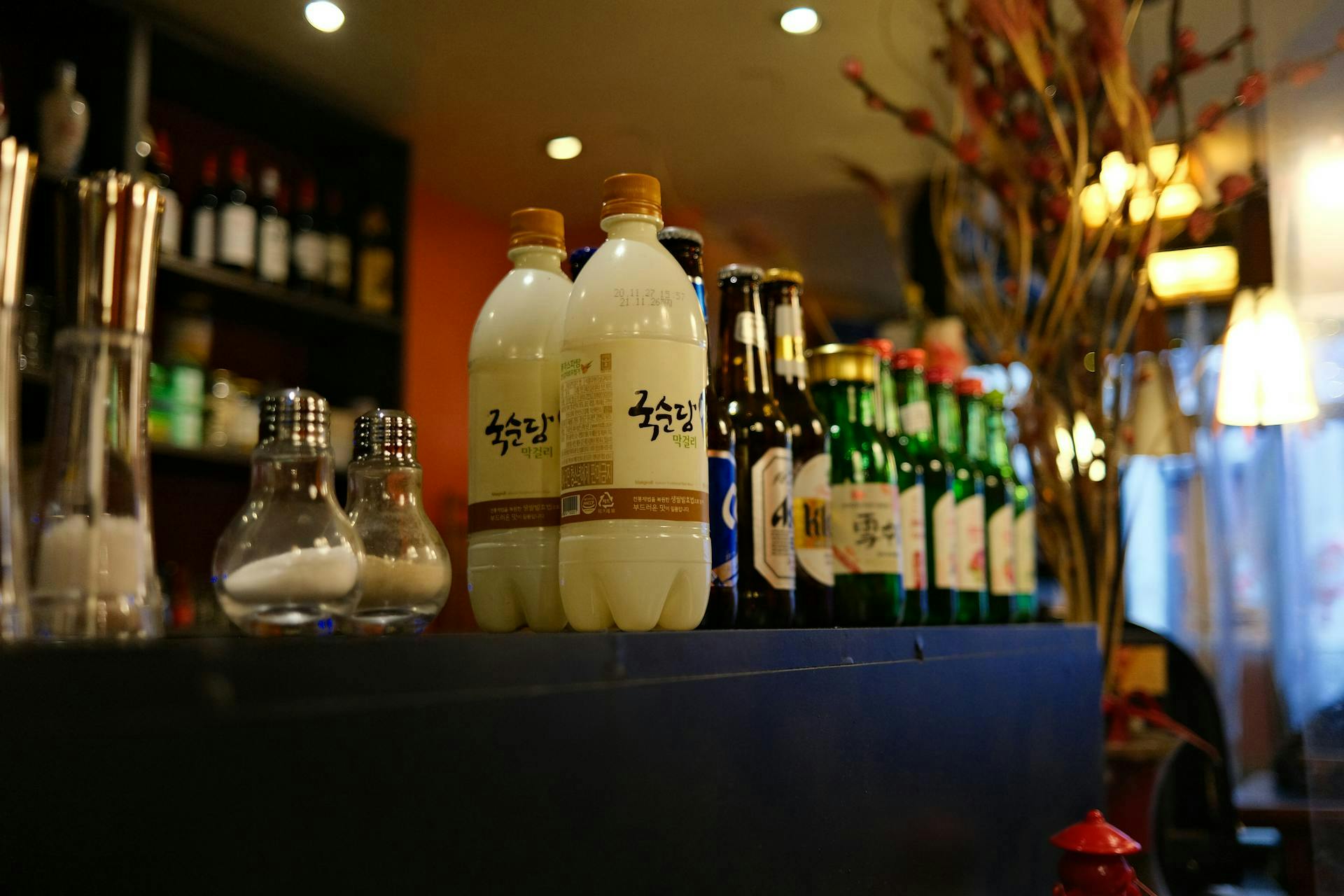your cart
Your cart is empty.
General Articles
Traditional Korean Alcohols and Their Surprising Benefits

Throughout history and still today, rice has been one of the most important crops to be grown and exported from all over Korea. Home brewing using rice has been intertwined with this history, and evidence of this is found in many ancient books and writings.
Korean alcohols Makgeolli and Soju are two of the oldest alcoholic beverages which are grown, brewed and drunk in the country. They are drunk socially, for special occasions and during meals. There are many variations to the alcohol including floral, herbs and fruit, although the most popular is the classic, with no added tastes.
Makgeolli

Makgeolli is a type of rice wine. It has a milky flavour, is slightly sweet and can sometimes, depending on the fermentation process, be fizzy.
Simple ingredients are used to make the alcohol, usually just rice, wheat flour (not always used), nuruk (fermenter) and water. Typically, no preservatives or filtration processes are used, which can result in a much shorter shelf life than you’d expect of alcohol.
Due to Makgeolli being unfiltered, it should be shaken or stirred before drinking.
Makgeolli was traditionally drunk and brewed by farmers, and in Korea, it is also known as ‘nongju’ which means ‘farmers liquor.’ The liquid is packed full of energy, making it the perfect drink for their breaks from a hard day on the rice farm.
Regularly, the drink was served with pajeons, which are like pancakes, so for a truly authentic Korean experience, why don’t you have a go at this combination?
The rice wine has recently gained more and more popularity, and the drink has suddenly become fashionable, it is now available in high-class bars and restaurants throughout Korea and the rest of the world. This could be due to the ease of production, price and availability. It also makes a great mixer for cocktails, making it a very versatile and adaptable drink.
Health Benefits of Makgeolli
There are many well-known health benefits from drinking Makgeolli. It is, unusually, in moderation, a body-friendly alcohol which may be another reason for its recent gain in popularity around the world.
The alcohol has traces of protein, carbohydrates and fibre, the vital B and C vitamins can also be found. Lactobacillus is a gut-friendly bacteria known to be in probiotic and natural yoghurts which are good for your stomach and immunity is also in Makgeolli, over double the amount is in the alcohol compared to yoghurts.
There is also a high number of amino acids, which help keep your skin firm and maintain its elasticity, some even put the liquid straight onto their skin and use it as a cleanser.
For the health conscious, or those of you who are looking for natural ways to improve your body’s function, makgeolli may be an alcohol drink you can have guilt-free!
Find out more in our guide to makgeolli.
Soju

Soju is another alcohol where rice is the main ingredient and has been distilled in Korea for thousands of years. It is often drunk during meals as it doesn’t have an overpowering taste, rather, it is neutral and clears the pallet, making it a great alternative to vodka.
In Korea, there are strict rituals around how the drink is consumed. There are rules of how to open the bottle, how it should be poured, who pours it and which member of the party tells you when you can drink it. Soju can be drunk neat or mixed into cocktails; a popular mix throughout the country is to have a shot of Soju, added to beer.
Some Soju’s are made with other starches, such as sweet potato, this first occurred during a rice shortage in Korea, the government had to stop people brewing with rice as the supply of it decreased. Some Soju’s are still made with these alternative starches.
Find out more about this traditional drink in our guide: What is Soju?
Makgeolli and Soju are two of the most popular alcoholic drinks in Korea, throughout history and still today. They are brewed and enjoyed all over the country at social events and during meals. Why not give them a try and tell us what you think?
this site uses cookies
We and our advertising partners use cookies on this site and around the web to improve your website experience and provide you with personalised advertising from this site and other advertisers. By clicking allow, you accept the placement and use of these cookies for these purposes. Learn More


